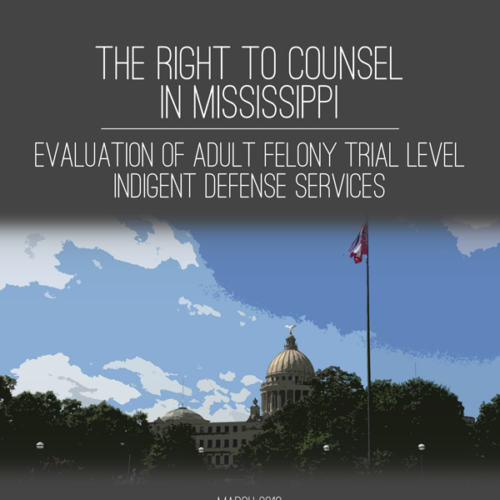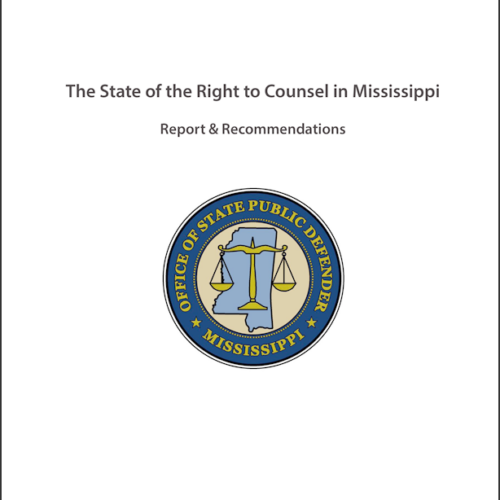Mississippi
The state of Mississippi delegates to its local governments all responsibility for funding and administering indigent defense service in adult criminal trials, except for some case types where the state provides services. The state has no commission providing oversight of indigent defense services.
The state of Mississippi funds and administers indigent defense services for some adult criminal case types in its appellate courts. Local governments fund and administer other case types. The state has no commission providing oversight of services.
-
82 Counties Primarily Locally Funded
-
82 Counties Primarily Locally Administered
-
82 Counties with No Commission and Limited Authority
-
82 Counties Primarily State Funded
-
82 Counties Primarily State Administered
-
82 Counties with No Commission and Limited Authority
The state of Mississippi delegates to its local governments the responsibility to fund and administer all indigent defense services, with a few exceptions where the state takes over. Counties and municipalities choose how to deliver indigent defense services, whether through public defender offices, private attorney contracts, or both. If a county has a public defender office, the circuit court judge appoints the chief public defender from recommendations by the local bar association. The state, through the Office of the State Public Defender (OSPD), takes over administration and funding in capital cases when requested by a county (and most do). The state also reimburses some costs to counties in narrow circumstances.
The governor appoints a state defender to lead OSPD. The state office provides training to all indigent defense providers and is responsible for gathering data. OSPD also provides appellate representation in felony appeals. A separate state entity, the Office of Capital Post-Conviction Counsel, is responsible for representing individuals in capital post-conviction matters. The state has no commission to oversee the two state agencies and does not exercise oversight of local indigent defense.
The state-funded Office of State Public Defender (OSPD) administers adult appeals in all felonies statewide. OSPD’s Indigent Appeals Division handles non-capital felony appeals whereas the Capital Defense Counsel Division (CDCD) handles capital appeals. Both divisions rely primarily on staff attorneys but also contracts with private attorneys for conflict or overflow cases. For misdemeanor appeals, which are rare, the state delegates the responsibility to fund and administer services to its local governments.
The governor appoints a state defender to lead OSPD, who in turn appoints a director for each division. OSPD also provides capital trial representation as well as parental representation. OSPD has a training division, which provides resources to public defenders and appointed counsel across the state. The state does not exercise oversight of local indigent defense and has no commission to oversee OSPD.
Dig Deeper
Who selects appointed counsel in counties without public defender offices and in conflict cases in counties with public defender offices?
What are the required qualifications of the state defender?
Articles (4)
-


Withholding felony representation for months at a time in Mississippi
March 15, 2018 -


ACLU files federal 6th Amendment class action lawsuit against a Mississippi County
September 24, 2014 -


Exploring the link between over-incarceration and a deficient right to counsel
September 19, 2012
Support Our Work
Criminal justice issues that disproportionately harm poor people, such as wrongful convictions and over-incarceration, cannot be fixed if indigent defendants are given attorneys who do not have the time, resources, or qualifications, to be a constitutional check on government. Yet, investment in improving indigent defense services remains largely neglected. The Sixth Amendment Center is the only nonprofit organization in the country that exclusively examines, uncovers, and helps fix the root of the indigent defense crisis in which inequality is perpetuated because poor defendants do not get a fair fight.
The Sixth Amendment Center is a tax-exempt 501(c)(3) nonprofit organization under EIN: 45-3477185.
Donations are tax-deductible to the fullest extent allowable under the law.



